Transcription of Identifying Subjects, Verbs, and Prepositions
1 Subjects, Verbs, And Prepositions One of the most important goals for reading and writing is establishing subjects. The subject of a book is the cumulative subjects of each chapter; the subject of a chapter is the cumulative subjects of each paragraph; the subject of a paragraph is the cumulative subject of each sentence. Unfortunately, many of us have been taught an inefficacious way of determining subjects. In order to find the subject of a sentence, you must find the verb first.
2 Why? A sentence s subject is NOT defined as what the sentence is about, but rather who/what is acting on the verb. Almost every sentence has a subject and verb. The most important part of a sentence and probably the most important part of speech is the VERB. Whether you re trying to write an effective sentence or interpret one, think first about verbs. Whenever possible, resist the temptation to rely on the verb to be (see below) because it tends to be imprecise. Verbs Verbs are about actionor being. Examples of action verbs: smash, talk, eat, mumble, groan, steal, ask Shakespeare wrote many plays.
3 [wrote=an action] Examples of the verb to be: am, is, are, was, were, has been, have been, had been My father was an affectionate man. [was=a being verb] Reading Tip If you re having trouble interpreting a sentence, find VERBS first. If you find the verb, you can more easily find the subject. If you identify subject and verb, you have the main idea of a sentence. Verbs in Disguise In football, normally the quarterback receives the snap, and then either hands off or passes. Sometimes, however, the quarterback chooses to run the ball himself or even to block or receive a pass.
4 He s still the quarterback, but in those other cases, he s functioning like a running back, blocker, or receiver. Verbs are versatile, like quarterbacks. Verbs function in various ways, acting as nouns and adjectives, and sometimes as the subject of a sentence. When you read and write, ask whether these disguised verbs describe nouns (in which case they re acting as adjectives) or if they re pretending to be nouns themselves. See the examples below, which feature chameleon-like verbs.
5 1 Example: I parked the car. [parked functions as a conventional verb] Example: Parking is difficult. [verb (Parking) functions as a noun and the subject of the verb is] Example: The driver crashed into a parked car. [parked functions as an adjective, modifying the noun car] EXERCISE on Identifying Verbs Directions: Circle the letter that corresponds to the list that has verbs only. Then identify a word from the other list that is NOT a verb.
6 1. Which list contains verbs only? Circle the letter that corresponds to your choice. (a)sip, stab, is, are, am, had, grumble, grab (b)sip, stab, is, was, golden, car, bold, filthy 2. Identify at least one word that is NOT a verb in 1a or 1b. _____ 3. Which list contains verbs only? Circle the letter that corresponds to your choice. (a)crawl, step, were, weigh, feel, need, look, throw (b)am, normally, steer, yesterday, want, ferocious, old, orange 4. Identify at least one word that is NOT a verb in 3a or 3b. _____ 5.
7 Which list contains verbs only? Circle the letter that corresponds to your choice. (a)under, near, by, with, for, to, bathe, women (b) go, take, reject, accept, understand, ignore 6. Identify at least one word that is NOT a verb in 5a or 5b. _____ 7. Which list contains verbs only? Circle the letter that corresponds to your choice. (a) gargle, rinse, spit, spray, gush, cleanse (b)slowly, carefully, defiantly, definitely 8. Identify at least one word that is NOT a verb in 7a or 7b. _____ 9. Add at least two writing-related verbs to the following list, and feel free to consult a thesaurus if you d like: scribble, write, _____ 10.
8 Add at least two speaking-related verbs to the following list, and feel free to consult a thesaurus if you d like: tell, relate, _____ 2 Subjects Every sentence has a subject, which is what the sentence is about. Without a subject, a sentence is usually incomplete a fragment and it s likely going to be unclear. A sentence s subject can be a person, place, thing, action, verb, noun almost anything you can think of.
9 Since the subject of a sentence is often a person, place, or thing, and since we know that people, places, and things are classified as nouns, we tend to think, mistakenly, that any noun we find is the subject. NOT every noun is the subject. The subject is what the sentence is about the main idea but in grammatical terms, the subject is who/what acts on the verb. If you can find the verb, you can find the subject. If you know the subject and verb, you understand the core of the sentence, which is crucial for reading comprehension and analyzing your writing.
10 The grammatical subject and verb are the main idea of a sentence. How to Find the Subject (1)First find the verb. (2) Then ask Who/what is acting on the verb? Who/what is verbing? Example: Shakespeare wrote many plays. 1. wrote=a verb 2. who/what wrote? Shakespeare 3. Shakespeare=the subject zzzzz * Trouble Spot Some parts of speech , such as prepositional phrases, seem like subjects, but they aren t. Some students confuse prepositional phrases with subjects. * Reminder Sentences can have more than one subject and verb.






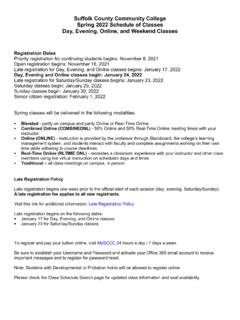


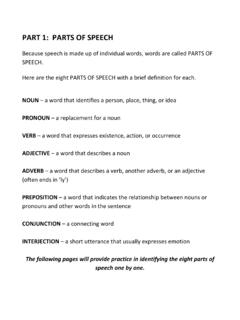

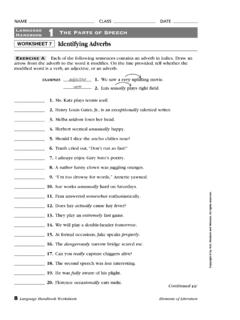
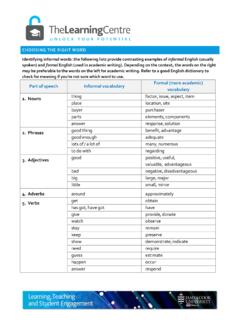
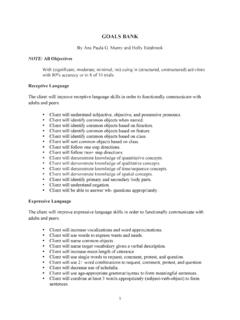
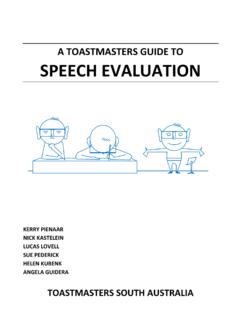
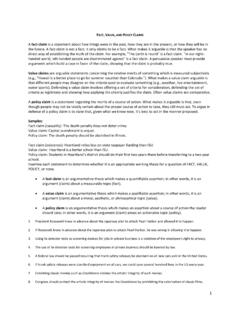
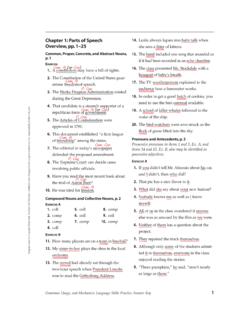
![arXiv:2006.11477v3 [cs.CL] 22 Oct 2020](/cache/preview/b/4/c/1/f/0/6/d/thumb-b4c1f06d9a16f45a66d47cafc726d437.jpg)